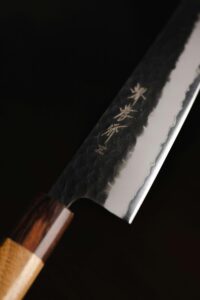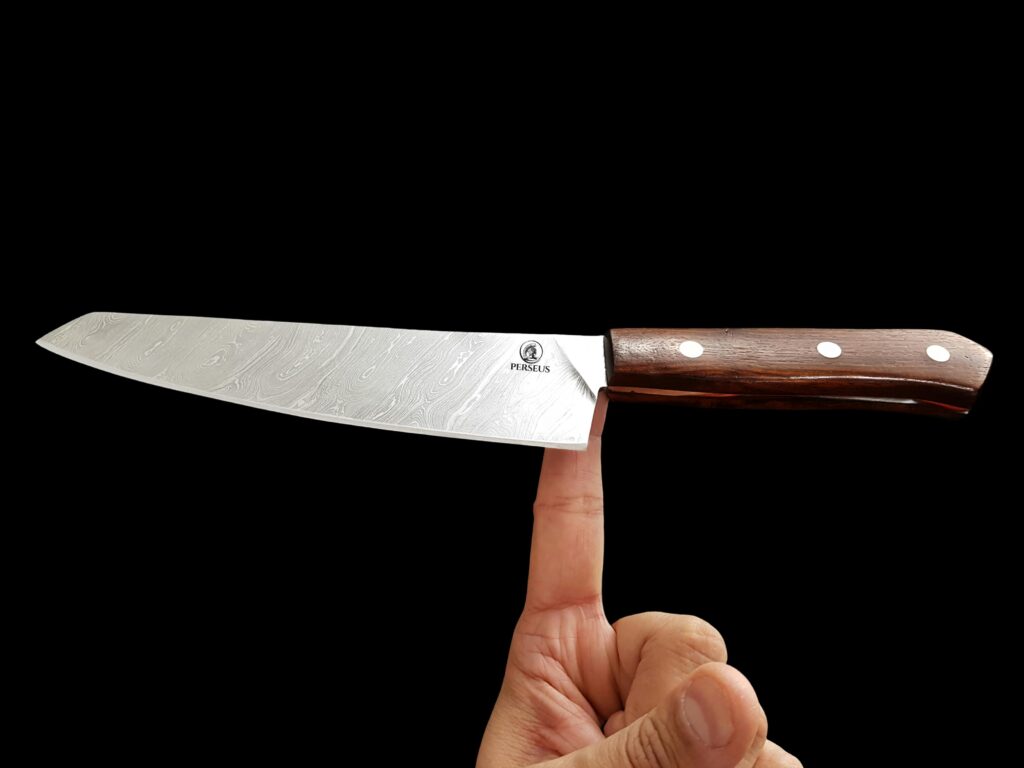| Name | Chefs Edge |
|---|---|
| Founded | 2018 |
| Founders | Ben Stieger & Samuel Haigh |
| Location | Leederville, Perth, Australia |
| Specialty | Japanese Kitchen Knives |
| Sourcing Regions | Sakai, Sanjo, Fukuyama, Tosa |
| Popular Products | Gyuto, Santoku, Petty Knives |
| Other Items | Whetstones, Ceramics, Hibachi |
| Store Aesthetic | Minimalist, Natural Timber, Zen |
| Audience | Chefs, Collectors, Home Cooks |
| Online Store | Yes, with National & Global Shipping |
| Unique Feature | Handmade Knives with Stories |
| Community Focus | Monthly Drops, Knife Education |
The global kitchen scene has undergone a quiet revolution. It’s no longer just about having the right ingredients or a stylish layout—today, serious cooks and food lovers are seeking tools that reflect precision, tradition, and craftsmanship. At the center of this growing interest stands one remarkable name: Chefs Edge. Based in Perth, Western Australia, this specialty knife retailer has become a beacon for those drawn to the meticulous world of hand-forged Japanese knives. But Chefs Edge isn’t just selling blades. It’s offering something far more intimate—a connection to history, purpose, and ritual.
Chefs Edge has developed a reputation that far exceeds its minimalist, timber-accented store in Leederville. What began in 2018 as a small project between two friends—Ben Stieger and Samuel Haigh—has grown into one of Australia’s most respected destinations for authentic Japanese culinary tools. From humble beginnings to becoming a sought-after destination for chefs, collectors, and everyday cooks, the journey of Chefs Edge is deeply personal and quietly profound.
When Ben first returned from Japan with his very first handmade kitchen knife, it wasn’t just the razor-thin edge that left an impression. It was the story behind the blade—the town where it was forged, the blacksmith who had trained for decades, the traditions that shaped each stroke of the hammer. That one knife sparked a fascination. Soon, he and Sam were importing blades and selling them one at a time. There was no flashy marketing, no massive budget—just curiosity and respect for craftsmanship. Today, they’re shipping across Australia and beyond.
Step into Chefs Edge’s Leederville store, and you’ll immediately understand the ethos behind the brand. The design reflects Japanese minimalism—raw timber, clean white spaces, and a small Zen garden placed quietly at the center of the room. Every shelf is deliberate. Every display serves a purpose. The layout doesn’t scream for attention. Instead, it encourages reflection—an invitation to slow down and appreciate the object in front of you.
But Chefs Edge isn’t a museum. It’s a living, breathing showcase of Japan’s rich knife-making regions. Their curated inventory comes from over 40 partners based in Sakai, Sanjo, Fukuyama, Tosa, and Takefu—towns synonymous with steel, skill, and generations of tradition. Whether it’s a sleek Gyuto from Hatsukokoro, a rugged Santoku from Yu Kurosaki, or a gleaming petty knife by Fujiwara Teruyasu, each item carries the weight of legacy.
What makes Japanese knives so desirable—and why Chefs Edge has built its entire identity around them—is their commitment to performance and precision. Unlike mass-produced Western knives, these blades are often forged by hand, one by one, with attention to detail that borders on the obsessive. Many use high-carbon steels like Aogami (Blue Steel) or Shirogami (White Steel), which can hold an incredibly fine edge when properly maintained. Others use more modern steels like SG2 or VG10, blending traditional methods with contemporary durability.

Chefs Edge doesn’t just sell these knives—they introduce them with context. Each product page tells a story: about the steel used, the hardness rating, the grind geometry, and even background about the blacksmith or workshop. This is not a brand focused on transactions. It’s focused on relationships—between tool and user, between heritage and modernity.
The experience extends far beyond the blade. Walk deeper into the store and you’ll find handpicked whetstones for sharpening, ceramic teaware, magnetic knife holders, and even hibachi grills—each piece complementing the larger culinary philosophy that Chefs Edge promotes. Their monthly “drops” often sell out within hours, and customers often line up well before opening on release days. At their recent Leederville store opening, queues stretched up to 60 people deep—a testament to their growing cult following.
There’s a quiet humility in how Chefs Edge operates. They’re not trying to dominate the market or compete with large kitchenware chains. Instead, they’re focused on nurturing a small but passionate community. Their followers, whether professional chefs or weekend stir-fry artists, keep returning for more than just new stock. They return for the storytelling, the guidance, and the feeling that they’re learning something ancient and valuable with each purchase.
Customers often describe their first Chefs Edge knife as a turning point—not just in their cooking, but in how they understand their tools. With the right blade, suddenly, slicing tomatoes becomes an experience. Chopping onions feels almost meditative. That’s the transformation Chefs Edge offers: it turns the ordinary into the intentional.
Knife care is a major part of the Chefs Edge narrative. Their website and social media pages feature step-by-step tutorials on sharpening techniques, proper storage methods, and the philosophy behind maintaining a razor-sharp edge. They encourage users to treat their knives not as disposable tools but as partners in a lifelong craft. Sharpening isn’t a chore—it’s a ritual. Storing a knife in a saya (wooden sheath) isn’t optional—it’s a sign of respect.
And the respect goes both ways. The brand is deeply committed to honoring the Japanese artisans it works with. Each partnership is built on trust and shared values, not just commerce. By supporting small blacksmith workshops and family-run businesses, Chefs Edge ensures that traditional knife-making isn’t just preserved—it’s celebrated.
There’s also a strong digital presence behind the brand. Their Instagram feed reads like a gallery, blending product showcases with knife care tips and behind-the-scenes glimpses into the forging process. Their tone is understated but sincere. There’s no hard selling. No clickbait headlines. Just authentic appreciation for the tools and the culture that created them.
What makes the Chefs Edge journey particularly compelling is its grassroots origin. In a world obsessed with fast scaling and global domination, here is a business that grew from one blade to one hundred through patience, trust, and quality. Ben and Sam didn’t chase trends. They listened, learned, and built a brand rooted in authenticity. Their journey is proof that when passion meets precision, success becomes a byproduct—not the goal.
Even in its packaging and customer service, the Chefs Edge difference is palpable. Orders are shipped with care and clarity. Product descriptions are honest and complete. The team replies to questions not with stock responses but thoughtful advice. In every step of the customer journey, the focus remains on education and respect.
As the culinary world becomes increasingly saturated with mass production and throwaway gadgets, Chefs Edge stands as a quiet rebellion. It reminds us that sharpness isn’t just a measure of performance—it’s a metaphor for awareness. In choosing a hand-forged knife, you choose mindful cooking, intentional living, and a deeper connection to the traditions that shaped our kitchens.
The next time you find yourself reaching for a kitchen knife, pause for a moment. Is it sharp? Not just in edge, but in purpose? Does it tell a story? Does it invite you to slow down and engage with your craft?
If the answer is no, perhaps it’s time to visit Chefs Edge. Not just to buy a knife—but to begin a journey.
FAQs
What is Chefs Edge best known for?
Chefs Edge is best known for curating handmade Japanese kitchen knives and culinary tools, sourced directly from small workshops in Japan’s top knife-making regions.
Are the knives at Chefs Edge handmade?
Yes, the majority of their knives are handcrafted by respected Japanese blacksmiths, using traditional forging techniques and high-performance steels.
Is Chefs Edge only based in Perth?
While their flagship store is in Leederville, WA, Chefs Edge offers online ordering and ships both nationally and internationally.
What types of knives do they sell?
Their range includes Gyuto, Santoku, Nakiri, Petty knives, and more—each suited for different kitchen tasks.
Can beginners buy from Chefs Edge?
Absolutely. Chefs Edge provides education and support to help beginners select the right tools and learn how to care for them properly.

